June 1-11
Cape Town, South Africa
My 4th trip to the African continent began with a stay in Cape Town, a city I had heard much about and one that more than lived up to my expectations. The legislative capital of South Africa, Cape Town, located on the shore of Table Bay, is simply a beautiful city; a blending of landscapes, cultures, traditions, and cuisines. I had the good fortune of renting an apartment a few minutes walk from the Victoria and Albert Waterfront, a hub of shops, restaurants, music, and the ferry terminal from where I began my excursion to Robben Island.
Cape Town was first mentioned by the Portuguese explorer, Bartholomeu Dias in 1488 who named it the “Cape of Storms” and then by Vasco da Gama in 1497. The city was later developed by the Dutch East India Company as a supply station for Dutch ships traveling to East Africa, India, and the Far East. The oldest urban area in South Africa, Cape Town’s first permanent European settlement was in 1652; six years later saw the start of border conflicts with the Khoikhoi, the native inhabitants of the region, who had migrated there more than 3,000 years before from modern day Botswana. The Khoikhoi were the first indigenous people to come into contact with the Dutch and, as the latter took over land for their farms, these native people were dispossessed, exterminated or enslaved.
Control of Cape Town went from the Dutch to the British, back to the Dutch, and finally back to Britain in 1814 and in 1910 the Union of South Africa was created to later become the Republic of South Africa. Like the rest of the country, the government's apartheid policy was and, in subtle and not so subtle ways, continues to be a stain on the country's history, as evidenced by the slum neighborhoods in the eastern edge of the city, in spite of Cape Town, one of the world's most multicultural cities, having the highest rate of equality in the country. I would be remiss if I didn't quote the following 2018 World Bank estimate of inequality around the world:
"More than two decades after South Africa ousted a racist apartheid system that trapped the vast majority of South Africans in poverty, more than half the country still lives below the national poverty line and most of the nation's wealth remains in the hands of a small elite."
Ten Days In Cape Town
The Victoria And Albert Waterfront
A Ride To The top Of Table Mountain
Table Mountain, 600 million years old and six times older than the Himalayas, is one of the world's oldest mountains and considered one of the "New 7 Wonders of Nature" At 3,563 feet above sea level, it is home to flora and fauna that survive only in its particular ecosystem.
View From The Top
Table Mountain
City Hall
A Symbolic Reminder Of The Past
Ferry Ride To Robben Island
Robben Island
Chosen for its remote location, Robben Island was used for a number of things between the 17th and 20th centuries; a prison, a hospital for socially unacceptable groups (lepers), and a military base. Known widely for its use as a maximum security prison for political prisoners in the 20th century and now a UNESCO World Heritage site, it is a testimony to the triumph of freedom and democracy over racism and oppression. In the 1990's when the apartheid regime was finally rejected by the South African government, prisoners who had been incarcerated there for many years were finally released.
Communal Cell
Nelson Mandela's Cell
Cape Of Good Hope
On the Atlantic Coast at the southern end of the Cape Peninsula lies this rocky promontory first seen by Bartholomeu Dias in 1488. Known for its spectacular scenery and breathtaking views, the Cape of Good Hope, part of Table Mountain National Park, is a wonderful spot for bird watching or simply breathing in the fresh air while gazing out at the sea. To reach the top, one can take a funicular or go by foot up a winding pathway.
Boulders Beach
Home to 3,000 free-roaming African penguins
Kirstenbosch National Botanical Garden
One of the world's most beautiful botanical gardens with over 7,000 species
An Evening View From My Apartment
...and another grand adventure comes to an end
Thank you, Nelson Mandela


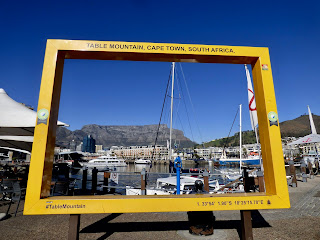

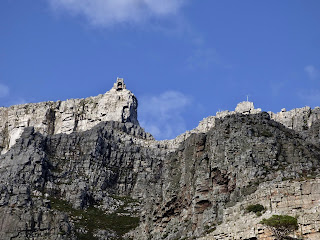
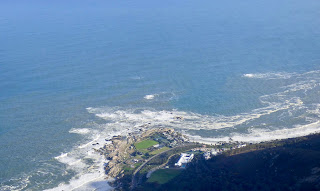



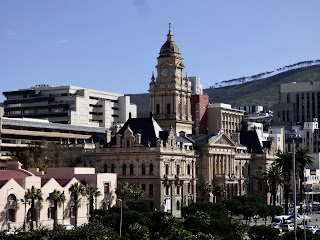







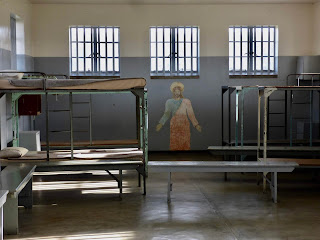


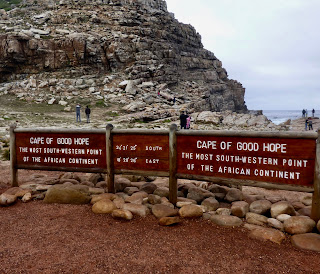







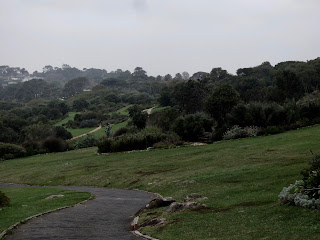


No comments:
Post a Comment